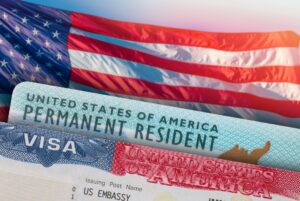At US-ILC, we listen, we care, we deliver: Let our 89 years of combined experience help you navigate the complexities of immigration law!
President Biden’s administration will be leaving office this month, but as one of their last-minute acts the administration has made some major changes to the H-1B process that will take effect on January 17th. The H-1B program was launched in 1990 to help employers fill specialty occupation positions in the US that require a minimum of a bachelor’s degree or equivalent. The program primarily serves the industries that typically have a shortage of available American workers to fill certain highly specialized positions, leaving employers struggling to meet their business needs.
Nevertheless, the H-1B program has had its fair share of ups and downs since its inception. The program and its processes have often come under scrutiny over the years for various reasons, and even its legitimacy has been questioned. The new rules are meant to modernize the H-1B process and make it easier for a US employer to sponsor foreign workers for certain specialty occupation positions. The H-1B process changes are also meant to protect workers from exploitation and improve the integrity of the H-1B program.
The New H-1B Process Changes
Tightens Degree Requirement
The new H-1B rules specify that a foreign nationals’ degree must be directly related to the proposed job duties and cannot be a general degree without specialization. A petitioner will have to prove that there is a logical relationship between the degree and the duties, while the USCIS will put more emphasis on the actual coursework instead of the actual degree title.
Gives Deference to Prior H-1B Approvals
The USCIS will now have to give deference to previously approved petitions if the job title and duties remain the same. Up until now, the USCIS has been known to deny an H-1B extension by claiming that the position was not a specialty occupation, even after previously approving it as such. The new process change will give consistency to extension filings and avoid the trauma of a denial for foreign nationals already in H-1B status.
Extends Cap Gap for F-1 Students
The H-1B process change will also include a new rule that will help students to remain in legal status and continue their employment while seeking a change of status to H-1B. The new rule will extend the Cap Gap period from October 1st to April 1st of the following year for these students.
Updates Form I-129
Petitioners will be required to use an updated Form I-129, Petition for Nonimmigrant Worker, as of January 17th. Since there will be no grace period, all previous versions of Form I-129 will be rejected as of that date.
Allows Eligibility for Beneficiary/Company Owners
The new regulations will now allow foreign workers with a controlling interest in a company to be eligible for H-1B visas if they will be performing specialty occupation duties most of the time. However, the H-1B will only be valid for 18 months.
Codifies Site Visits
The USCIS sometimes conducts site visits to businesses to ensure that the H-1B position is bona fide and aligns with the information in the Labor Condition Application, and that the employer and employee are complying with the program’s rules and regulations. However, the USCIS’ authority to conduct these site visits and penalize violators will now be codified – meaning that the law will be clarified and arranged into a formal, legal code that is easier to enforce.
Alejandro N. Mayorkas, the Secretary of Homeland Security, stated that the upcoming improvements will “…boost our economic competitiveness, and allow highly skilled workers to continue to advance American innovation,” among other significant benefits. H-1B employers are also hoping that the new rules will indeed enhance the process.
If you are an employer or foreign national who is interested in the H-1B process, or if you have questions regarding another immigration legal matter, contact U.S. Immigration Law Counsel for a strategy session to discuss your case.




